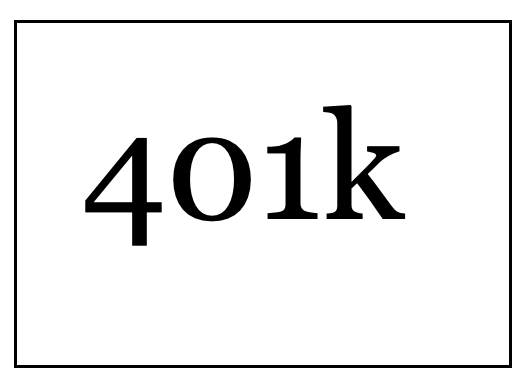
It used to be that defined benefit pension plans were the staple of workers’ retirement income. These days, they’re a rarity, and the onus is on each of us to save for retirement. For many workers, saving for retirement is accomplished chiefly by the 401k plans offered by their employers.
401k plans are filled with a dizzying array of options which can cause people to become so overwhelmed that they make easily avoidable mistakes. These are three of the most common errors that I see people fall prey to.
Mistake #1: Using the Default Investment Option
One of the biggest mistakes people make with their 401k is ignoring the investment options within the plan. Rather than researching the different investments, they instead choose the default option. By not taking advantage of all your options, you risk hamstringing your long-term returns.
Solution: Don’t just settle for the default investment choice. Take the time to look at the options your plan offers.
Mistake #2: Forgetting Where Your 401k Fits Within Your Financial Plan
Another common mistake people make is thinking of their 401k in a bubble. That is, they don’t think of it in relation to the rest of their investment portfolio. Without looking at their entire investment picture, they run the risk of having an unbalanced portfolio. You want your portfolio to be balanced so you can better control your risk. For example, if you have desired asset allocation is 60/40 (60 percent equities, 40% fixed income) but put all of your 401k allocations in equities, the result is a much riskier portfolio than what you really want, thereby unbalancing your portfolio.
Solution: Before you make your 401k allocations, revisit the financial plan you constructed with your financial advisor.
Mistake #3: Ignoring Taxes
The tax implications of a 401k are something many people often overlook. Most people are aware that contributions to a 401k may reduce their taxable income, but they may not realize they have other tax planning strategies at their disposal. For example, you can diversify your investments based on asset location by putting investments that will generate the most taxable income into accounts that provide tax advantages (e.g, your 401k or an IRA). Investments that generate the smallest taxes, such as municipal bonds, should be placed in accounts with fewer tax advantages.
Solution: Consider how you should allocate investments to minimize how much of your money you could lose to unnecessary taxes.
While a 401K plan might not offer the security of a defined benefit program, it can be an important tool as your prepare for retirement if you manage it well.
The opinions voiced in this material are for general information only and are not intended to provide specific advice or recommendations for any individual and is not intended to be a substitute for specific individualized tax advice. We suggest that you discuss your specific tax issues with a qualified tax advisor.


